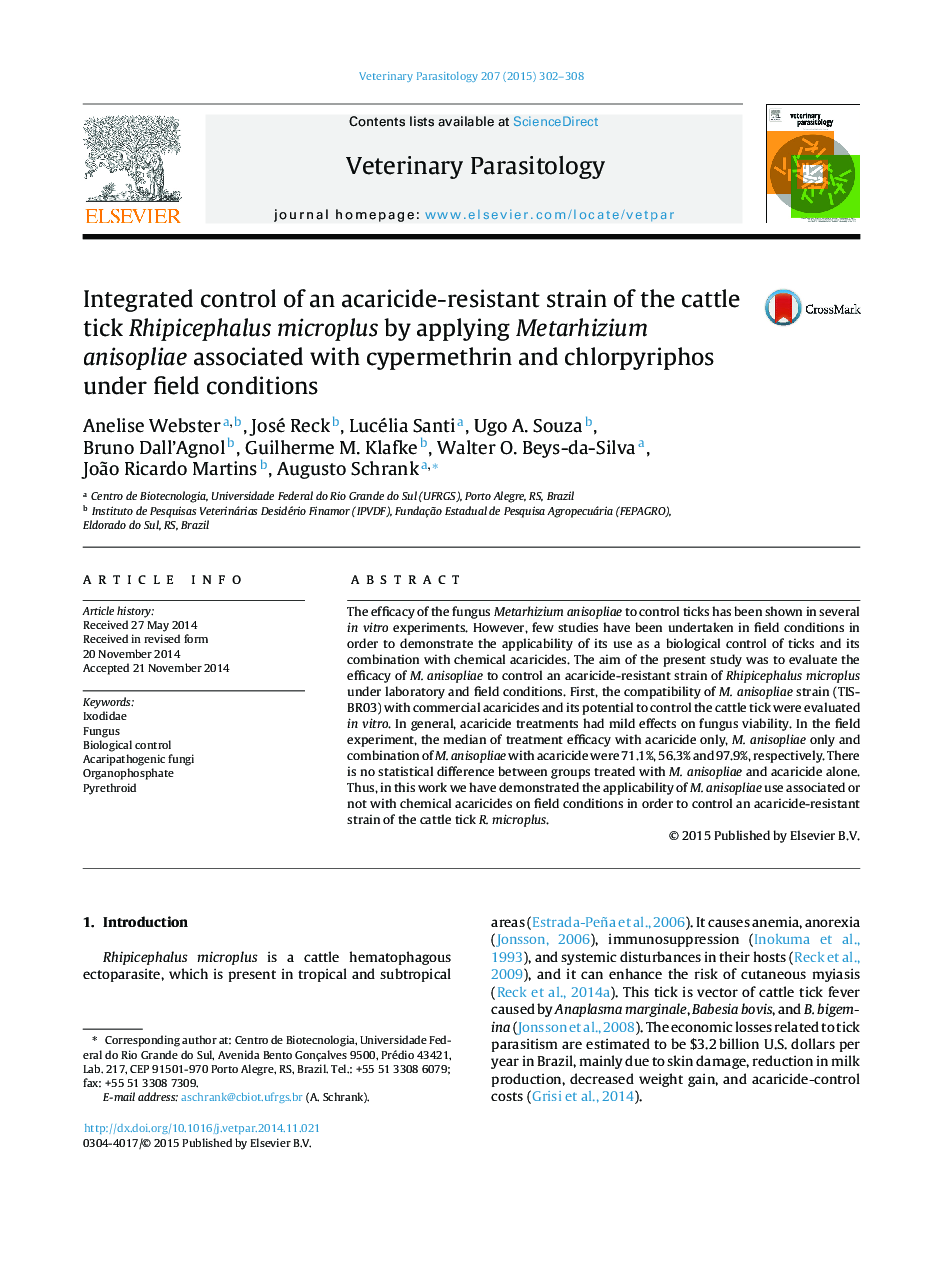| Article ID | Journal | Published Year | Pages | File Type |
|---|---|---|---|---|
| 5802605 | Veterinary Parasitology | 2015 | 7 Pages |
â¢The ability of Metarhizium anisopliae to control ticks has been investigated.â¢M. anisopliae was efficient against an acaricide-resistant tick strain in the field.â¢M. anisopliae was compatible with commercial acaricides.â¢Association of chemical acaricides with biological agents improved tick control.
The efficacy of the fungus Metarhizium anisopliae to control ticks has been shown in several in vitro experiments. However, few studies have been undertaken in field conditions in order to demonstrate the applicability of its use as a biological control of ticks and its combination with chemical acaricides. The aim of the present study was to evaluate the efficacy of M. anisopliae to control an acaricide-resistant strain of Rhipicephalus microplus under laboratory and field conditions. First, the compatibility of M. anisopliae strain (TIS-BR03) with commercial acaricides and its potential to control the cattle tick were evaluated in vitro. In general, acaricide treatments had mild effects on fungus viability. In the field experiment, the median of treatment efficacy with acaricide only, M. anisopliae only and combination of M. anisopliae with acaricide were 71.1%, 56.3% and 97.9%, respectively. There is no statistical difference between groups treated with M. anisopliae and acaricide alone. Thus, in this work we have demonstrated the applicability of M. anisopliae use associated or not with chemical acaricides on field conditions in order to control an acaricide-resistant strain of the cattle tick R. microplus.
